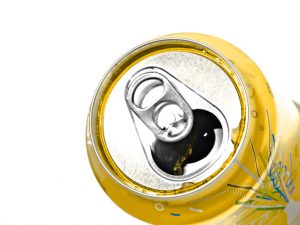
The state’s highest court refused to reinstate the city’s controversial limits on sales of jumbo sugary drinks a year ago this June, quashing the hopes of health advocates who want governments to curb the consumption of drinks and foods linked to obesity.
But Bloomberg and soda will be forever linked. He put up a fight for public health and had powerful beverage companies on red alert, fearing their products would be forever tainted. The controversy also sparked a global debate over soda consumption and sugary drinks’ health risks.
Consumption of sugar drinks on the rise
But data from the National Health and Nutrition Examination Survey, 2005-2008, suggests most of us are consuming far more. Approximately one-half of the U.S. population over age two consumes sugar drinks on any given day. Breaking that down further, males consume more sugar drinks than females, and teenagers and young adults are downing more sugar drinks than other age groups. About 25 percent of the population consumes at least 200 kcal (more than one 12-oz can of cola) on any given day.
Types of sugary drinks
Sugar drinks do not include diet drinks, 100 percent fruit juice, sweetened teas and flavored milks.
Sugary drinks: Bad effects on your health
All calories may not be created equal. Some research is emerging that suggests calories from sugar are more easily turned into fat in your body that calories from fat in food. Eating and drinking sugar makes you gain more weight than fat.
Weight gain, obesity and too much sugar all set you up for type 2 diabetes where your body can’t use insulin effectively to manage the sugar in your system.
Drinking your calories poses another problem. When you drink a lot of calories, your body doesn’t register fullness as quickly as when you eat the calories. So you drink more without getting a signal from your body to stop. Again, too many calories and too much sugar.
Sugar crash. When you drink a lot of sugary drinks in short order, you get that sugar rush. This is followed by a spike in insulin in response and then a glucose crash where you feel void of energy. Trouble is, people compensate by drinking more soda and sugary drinks, creating a spike and crash cycle.
Caffeine and sodium combo. Beyond the sugar threat, cardiac experts say the caffeine and sodium in soda sets you up for high blood pressure and heart attack and stroke. Caffeine can increase blood pressure and heart rate. Then too much sodium over the course of the day can increase food retention.
This is a dangerous combination because it’s dehydrating. You drink because of thirst, but urinate not long after because of the caffeine, which is a diurectic.
If you’re thirsty, you want the heart to be replenished with water, but instead you’re further dehydrating yourself because you’re drinking soda. Hard on the heart.
Soft drinks: Healthy alternatives
How to break the habit of drinking soda and other sugary drinks? Like any habit, it’s going to take some effort to change. But there are alternatives to drinking soda that are tasty and satisfying. Once you get into the rhythm of swapping out your soda for these, you’ll start feeling more energized and healthy:
New research by the U.K.’s Medical Research Council, published in Diabetologia, found that forgoing a sugary drink a day and drinking water, unsweetened tea or coffee instead could cut the risk of developing type 2 diabetes by almost 12 percent.- Unsweetened tea or coffee: The antioxidants in tea and coffee help protect against disease and give your brain a stimulating boost from the caffeine. A few cups a day plus some glasses of water will help you quit your soda habit and boost your health.
- Juice and sparkling water: Need a little fizz? Take one part 100 percent fruit juice, such as cranberry or pomegranate, and mix with two parts sparkling water. Refreshing and you get bubbles and healthy nutrients from the juice.
With these healthy alternatives to drinking soda, you can quit your sugary drinks habit for good – and reap the benefits for your health. So long, cola!
Related Reading:
Here’s why soda intake could increase cancer risk
To drink or not to drink soda pop? This is a big debate in health circles, and not because of sugar content or diet concerns – but fear of cancer. Read more here.
Diet soda drinkers more likely to be obese
Feeling guilty lining up at the fast food restaurant counter? Well, that greasy burger and fries won’t be any less detrimental if you wash them down with diet soda. No free pass for you! Here’s why.